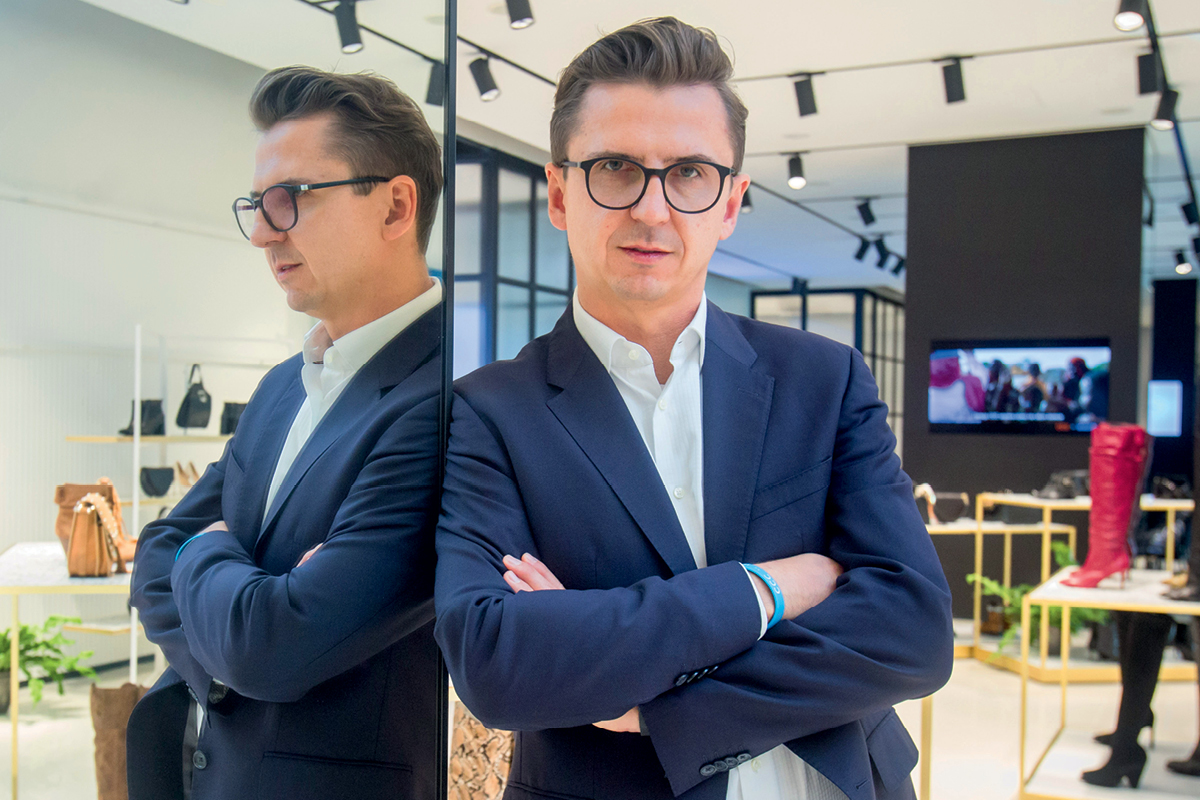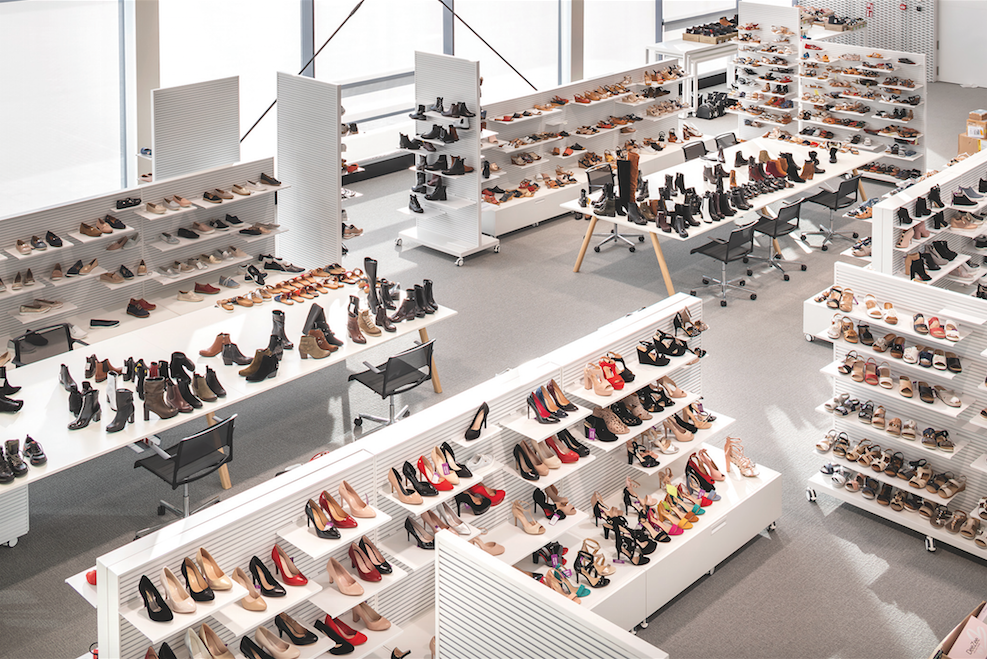In his role as CFO of CCC, Marcin Czyczerski was able to develop a deep understanding of both the financial and strategic priorities for the Polish footwear company. The two-year period also served as preparation for the step up to the CEO post in 2019.

“Being the CEO is a unique chance to shape the business at the top level,” he says. Much has changed for the company since the Doctor of Economic Sciences joined in January 2017, after nearly 15 years with Sitech, the car seat manufacturing subsidiary of Volkswagen.
“From a silo mentality, our approach is now one of openness and cooperation,” Marcin explains. “We have moved away from one style of product to a wide range of products and fashion, reaching a large scope of customers. Now we’re a company with a clear vision for business advancement, and one that cares about sustainability and social issues.”
The CEO Magazine first spoke to Marcin in 2017 and, fresh to the Group’s Polkowice headquarters, he explained how the company’s medium-term goal was to double its size without impacting profitability.
Now, more than three years later, has this been achieved? “We have expanded our presence from 16 to 29 countries and developed ecommerce to a point where we now have around 60 online sales platforms in 16 markets,” he responds.
In terms of turnover, the company has recorded growth for 15 years running; the past three have been no exception. Over the past two years, more than PLN1 billion (€222 million) has been invested in a logistics centre, IT systems, acquisitions, and development of both bricksand-mortar and online stores.

With this enhanced framework as support, in January this year, the Group published GO.22, its strategy for 2020–2022. “We have set five key business areas: omnichannel, product, efficiency and effectiveness, financial stability and sustainable growth,” Marcin explains.
“We plan to base our future growth on building and strengthening omnichannel sales, further digitalisation of processes and expansion of the product line.” These measures, he adds, have been designed to allow the creation of an “optimal and scalable omnichannel organisational model” with the customer at the core.
By 2022, it’s predicted that ecommerce, led by online shoe retailer Eobuwie, will account for 35 to 40% of the company’s total turnover, up from 24%. Other engines for this online growth include CCC.eu, launched last year, and DeeZee where CCC has 75% of shares.
GO.22 may be a strategy for long-term goals, but Marcin’s quick to mention CCC’s agility in the face of change, a characteristic that has also proven priceless in the first half of 2020.
“When the COVID-19 pandemic arrived, we reorganised very quickly, establishing a crisis team, implementing appropriate internal procedures and remote work, renegotiating all our contracts, revising all our agreements and undertaking deep cost-cutting,” he says.
Liquidity and security of the Group’s financing have been the priority, along with the safety of employees and customers. As shopping malls and high street stores shuttered, the focus has understandably turned to ecommerce.
Projects that have been identified as being of help in recovering from this difficult and extraordinary situation have also been accelerated, such as the start of online CCC sales in Hungary, Austria and Romania, the launch of the CCC mobile app in overseas markets and the start of DeeZee online sales in four new markets.
Marcin acknowledges that the crisis will have an inevitable impact on the company’s results. “We ended the first quarter of 2020 with revenues of PLN944 million [€209 million], 9% lower than a year earlier,” he shares.
“This was the result of a drastic decrease in traffic in the first half of March and the closing of most stores in the second half of that month.” In all possible scenarios, a loss of liquidity has never been anticipated.
Best foot forward
“Innovation is an important activity for the CCC Group, primarily in the areas of distribution, logistics and warehousing,” Marcin explains. Some of the recent innovations he names include esize.me, an initiative designed to reduce returns in the online ordering process and help people to fit shoes perfectly by making 3D scans of their feet and using it when buying shoes online, and the launch of a fleet of eco-friendly lithium ion battery-powered trucks. “The innovations result in a clear range of benefits, including, but not limited to, lower energy intensity, GHG emission savings, elimination of resource wastage and cost reductions perceptible by the Group companies.”
“We’re considering several variants that will make us emerge stronger from this crisis,” he says. “We expect a decrease in sales value in 2020 and its reconstruction in 2021. At the same time, the market structure itself may change.”
Customers who turn to digital channels for the first time during the pandemic may never return to old habits. Consumers may display higher price sensitivity and search for the best quality-price balance (“where we are the leader,” he points out).
“The product will have to be attractive, affordable, well made and present across many sales channels,” he adds. With a stable of well-known brands, such as Lasocki, Gino Rossi, Sprandi, Jenny Fairy and DeeZee, two large footwear factories in Poland and nearly 35% of the Polish footwear market (20% in CEE), Marcin appreciates that the company is well prepared for the post-COVID reality.
“We know how to operate on a large scale and we want to keep functioning in this way,” he says. If anything, the past few months have reinforced fundamental leadership learnings.
“You need to have the courage to make difficult decisions and not to compromise when they’re about the future of the company,” he says. “You need to be ready for change. You need to take important lessons from every failure as that allows you to come back stronger. And you have to build and appreciate a team that shows that people are the company’s most important capital.”
Proudly supported by:



